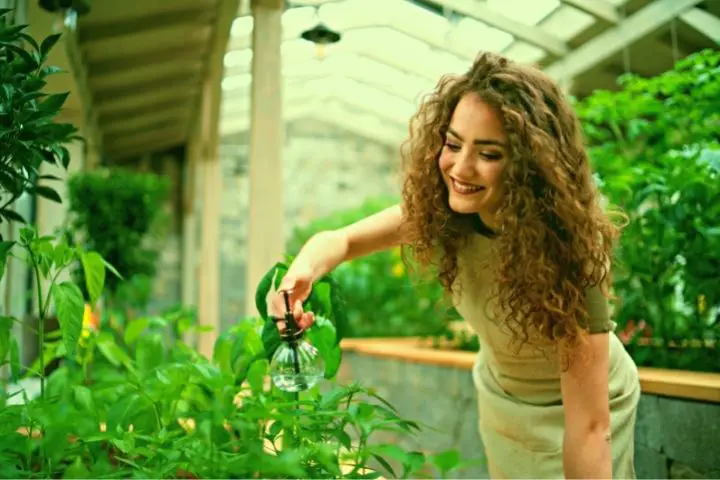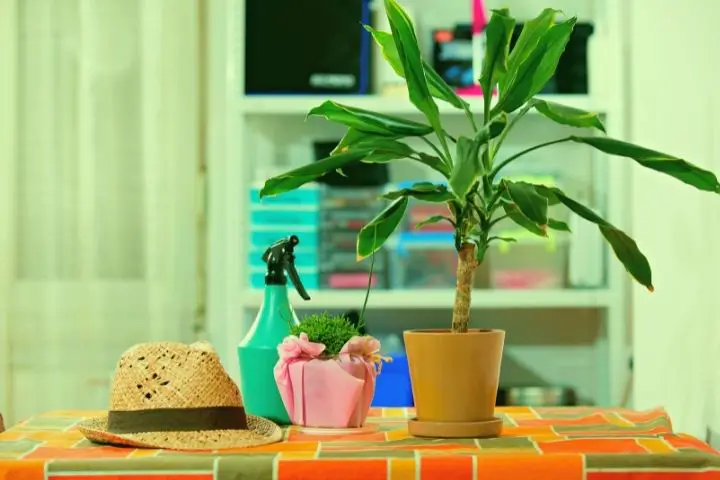What Plants Not to Use Neem Oil On | Pest Care 101
Looking for non-toxic pesticides that are actually affordable and effective can be quite the challenge. As an Enviromom, I want to protect the environment, but I have to admit that most natural chemicals are limited!
This was until I discovered neem oil. Apart from the beauty aspect of neem oil, it’s actually a very good solution to annoying pests in the garden or for indoor plants. However, neem oil cannot be used on all plants.
Can Neem Oil Be Used on All Plants?
Neem oil is a non-toxic pesticide that can be used safely in your home and garden. The pesticide compounds in neem oil will only affect pests and other things that feed on your plants, not birds, fish, bees, and other beneficial ingredients.
When used correctly, neem oil is very safe to use in most kinds of plants. However, not all plants fend well with neem oil. Your plant won’t benefit from neem oil if it has needles, fur, and other things that will prompt the pests to go deeper in the plant.
Plants with rough or patterned leaves such as Calathea will not benefit from neem oil. So, make sure to check your indoor plants before spraying neem oil on them.

With garden plants, neem oil cannot be used on herb plants such as cilantro, basil, thyme, parsley, or oregano. When spraying on plants with wispy or delicate leaves, such as lettuce and arugula, you should take special care as neem oil can cause foliage burns.
It’s also wise not to use neem oil on young plants as it can hinder their growth.
*Note! Even your plants with tough foliage can be burned with neem oil. So, it’s always best to be careful when applying neem oil and what part of the day you do it.
Spraying neem oil coats your plants in a layer of oil that will suffocate some bugs and damage the systems of other bugs. It will also sort out any bugs that are hiding. However, since neem oil is…well, an oil, you have to be armed with good advice when using it for your plants, otherwise, you can cook your plants!
Can Neem Oil Damage or Kill My Plants?
Neem oil is a powerful natural alternative to chemical-ridden insecticides, however, if you don’t use it properly, you might damage your plants.
The oil can burn plants if you spray it during the day, especially in the hot summer months. Direct sunlight on your plant with neem oil spells bad news. While you may not smell the burn like a burning pot of food, you’d notice that the end of the leaves is turning brown.
While neem oil might burn your plant and stunt its growth, the oil won’t kill mature plants. Young plants and seedlings are more prone to death due to neem oil and exposure to sunlight. I don’t advise using neem oil on seedlings or plants that have been stressed, as you may risk permanently damaging them.
When Should I Spray Neem Oil on My Plants?

Unlike other pesticides or insecticides, Neem oil can be used during any season. This oil is usually used as a preventative method and should be sprayed on your plants once a week. Spraying them every day is also safe but not advised by plant mums and dads!
Spray or mist your plants during the early morning or late afternoons. Avoid direct sunlight, especially if you’re spraying outdoor plants. The middle of the day is when the sun is hottest, so don’t spray your neem oil at that time.
How to Mix Neem Oil for Plants
Did you know that a homemade neem oil spray for your plants is much more potent than a commercial one?
This is because you can choose a good quality neem oil, which allows you to get many pesticide compounds. You can also mix more neem oil if you wish. Make sure to buy cold-pressed neem oil because it contains a lot of azadirachtin.
To mix your neem oil spray, you need:
- 1 teaspoon neem oil
- ⅓ tsp of any mild detergent or dishwashing liquid
- 1 liter of warm water
Mix the detergent/dishwashing liquid with the water in a bottle and shake well to dissolve the two ingredients. Then add your neem oil and shake again. The detergent/liquid is to emulsify the neem oil with water, because we know from science that oil and water don’t mix! So, don’t forget that step.
This mix will give you a mild 0.5% basic neem oil spray, perfect for indoor plants and general garden use. You can make a higher dose, going up to 2%, but I recommend this to be used outside only. Be sure to add more water if you make a higher dose.

Is Neem Oil Better Than Other Insecticides?
IMO, yes!
It’s great, especially for indoor use, because it’s non-toxic and completely natural. Of course, you can’t eat neem oil straight from the bottle, it’s safe to use on the plants that you plan to eat or harvest from.
Neem oil does not stick around in the environment and eventually breaks down by the plant and the soil. This makes it completely safe, unlike chemical pesticides, which cannot be broken down.
Neem oil is also a pretty targeted solution compared to chemicals. Insects have to eat the neem oil to actually die, so it will only kill the pests that want to harm your plants. Flies, bees, birds, and other passers-by won’t be affected by it.
Of course, neem has its drawbacks. The smell is pretty strong, and some might even say it can give you a headache, so don’t use much of it too often. Neem oil can also damage your plants if it’s not mixed properly or you don’t use it as advised, so be sure to always follow instructions.
Frequently Asked Questions
Can plants recover from too much neem oil?
Yes, they can! Wipe the extra neem oil with a damp cloth, then spray water on the leaves so the rest of the oil can wash away. Give your plant a good watering if it’s showing yellow leaves or seems stressed.






